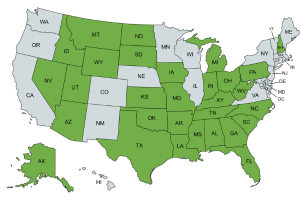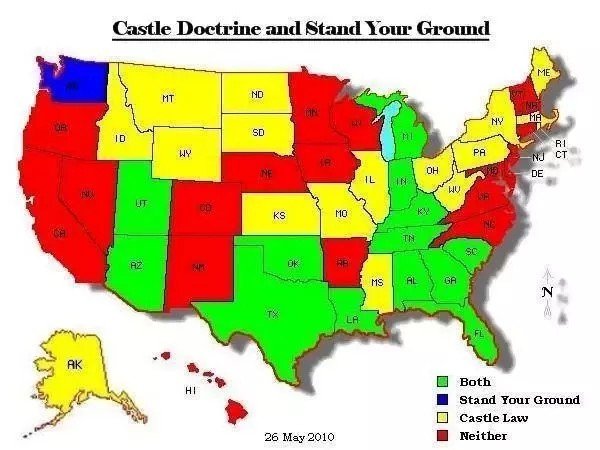Does Nevada Have a Stand Your Ground Law?

Yes, Nevada has a Stand Your Ground law, also known as the Self-Defense Act. It was passed in 2024 and codified in Nevada Revised Statutes (NRS) 200.155. The law states that a person is justified in using deadly force in self-defense or the defense of others if they reasonably believe that such force is necessary to prevent imminent death, serious bodily harm, or the commission of a violent felony.

Key Provisions of Nevada’s Stand Your Ground Law:

No Duty to Retreat: In Nevada, individuals have no duty to retreat before using deadly force in self-defense. This means that they can stand their ground and use deadly force if they reasonably believe it is necessary to protect themselves or others from imminent harm, even if they have the opportunity to safely retreat.
Imminent Danger Requirement: The law requires that the person using deadly force reasonably believes that they are in imminent danger of death, serious bodily harm, or the commission of a violent felony. Imminent danger means a threat that is immediate, impending, and unavoidable.
Objective Reasonableness Standard: The reasonableness of a person’s belief that they are in imminent danger is judged by an objective standard. This means that the court will consider whether a reasonable person, in the same situation, would have believed that they were in imminent danger and that deadly force was necessary to protect themselves or others.
Exceptions to the Stand Your Ground Law:
Provocation: The Stand Your Ground law does not apply if the person using deadly force provoked the attack. Provocation means words or actions that would cause a reasonable person to become enraged and act in a violent manner.
Initial Aggressor: The Stand Your Ground law does not apply if the person using deadly force was the initial aggressor in the encounter. Initial aggressor means the person who started the confrontation or provoked the attack.
Mutual Combat: The Stand Your Ground law does not apply if the person using deadly force engaged in mutual combat with the other person. Mutual combat means a fight or physical altercation that both parties willingly participate in.
Implications of Nevada’s Stand Your Ground Law:
Nevada’s Stand Your Ground law has implications for the prosecution of self-defense cases. Prosecutors must prove beyond a reasonable doubt that the defendant did not act in self-defense or that one of the exceptions to the law applies. The law has been criticized by some who argue that it makes it too easy for people to use deadly force in self-defense and that it disproportionately benefits certain groups of people.
Conclusion:
Nevada’s Stand Your Ground law provides individuals with a legal defense to the use of deadly force in self-defense or the defense of others. However, the law is subject to exceptions and limitations, and prosecutors must prove beyond a reasonable doubt that the defendant did not act in self-defense or that one of the exceptions applies. The law has been the subject of debate and criticism, but it remains in effect in Nevada.






